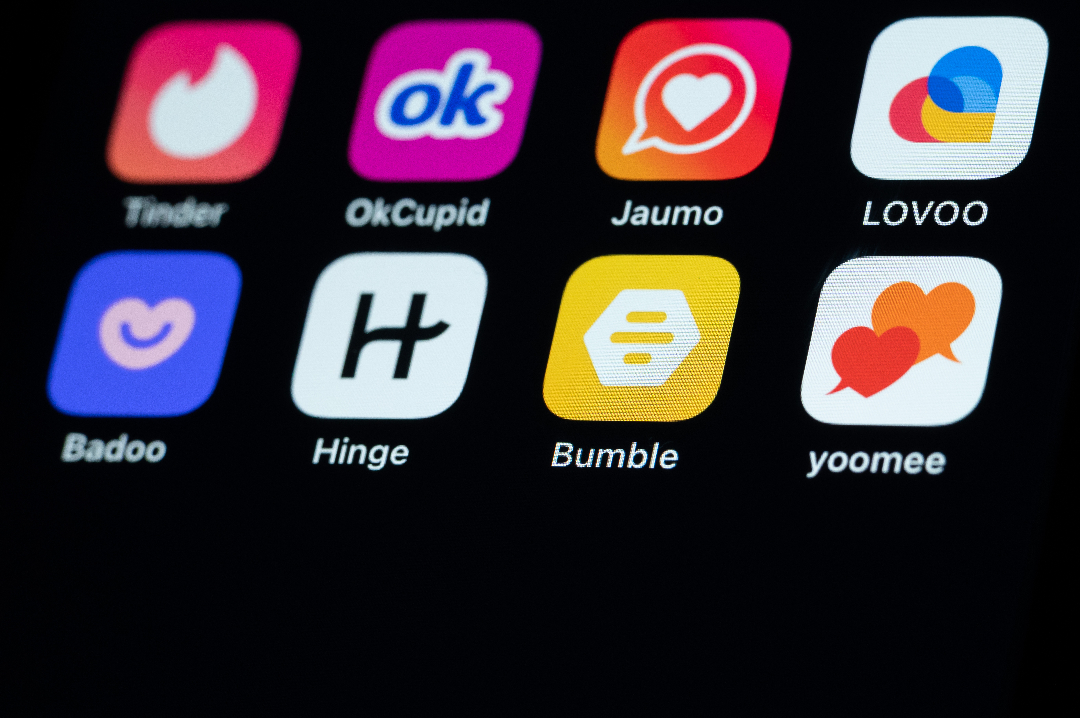It’s prime-time Friday night one week before Valentine’s Day and outside of a packed bar in Downtown Manhattan, two fire trucks are flanking the door. The building, thankfully, is not on fire: the bar is hosting a “Rescue Me” singles party, a dating event for people who want to meet firefighters and other first responders — including a few who’ve been ferried there by their enormous red trucks.
Inside, over the sound of J-Kwon, a DJ encourages the “ladies, ladies, ladies” to go outside and get a photo climbing the trucks. Women in sparkly blouses, meanwhile, chat up firefighters with flashlights and carabiners dangling off their utility belts. Brittany Wingate, a tall thirtysomething in a bright red dress, jokes that some of the guys still smell like smoke.
Wingate says that while she’s here looking for in-person connections, she also dates online, using popular apps like Hinge and Tinder. But she says that recently, she’s felt like the apps only really match her up with potential dates if she pays for a “premium” subscription. She wistfully remembers the promise online dating offered when it first gained popularity about a decade ago: a slick, all-new way for people to find love. But now, she feels that opportunity has faded.
“Whatever their mission was when they first started,” Wingate says, “it’s no longer that. They have been bitten by capitalism.”
The rise in dissatisfaction with dating apps has been breathlessly reported and carefully quantified. A 2023 Pew study showed that about half of people who date online say their overall experience has been negative. And while some companies are reporting a decline in users, overall, dating apps remain a cultural bedrock: that same Pew study found that three…
Auteur: Amos Barshad

